2025 Arctic Cat Wildcat XX Buyer’s Guide
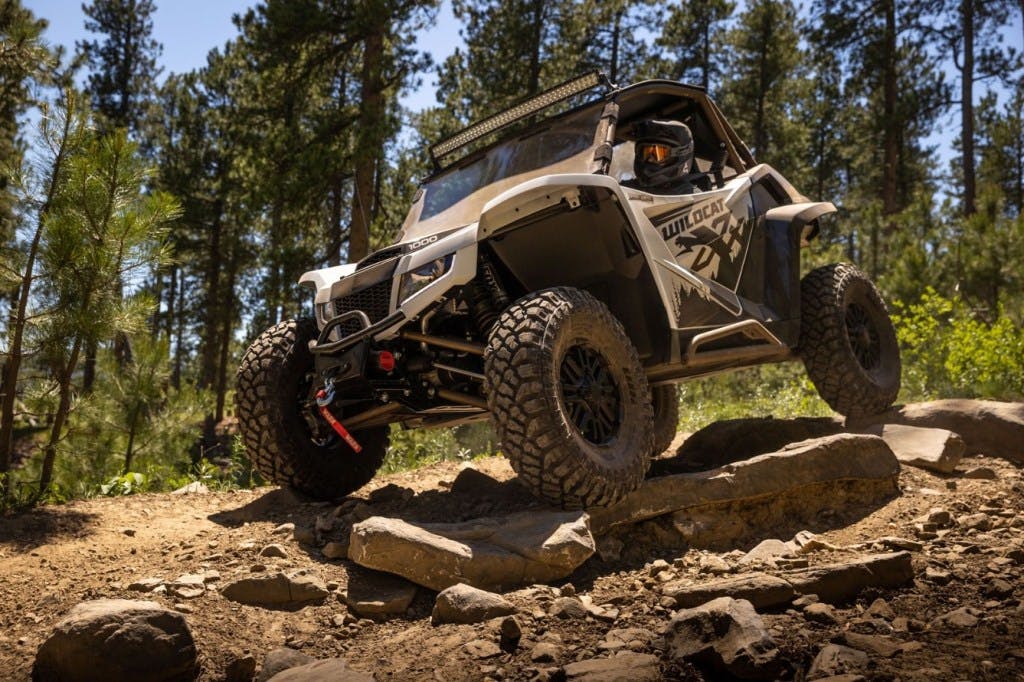
$24,999 MSRP
• Utterly Dialed Chassis
• Punchy three-Cylinder engine
• Packed with unique engineering
The exotic alternative.
Arctic Cat’s Wildcat XX may not attract the same sort of press that the latest Maverick R or Teryx H2 enjoy, but make no mistake about it: this is a fully capable machine that’s lost none of its appeal over its current eight-year run.
A dynamite chassis and quality suspension never go out of style, and the Wildcat XX has style for days. There are plenty of good reasons to have a Wildcat XX on your short list. Or maybe you just don’t want to be just another Polaris or Can-Am in the lot at your local trails.
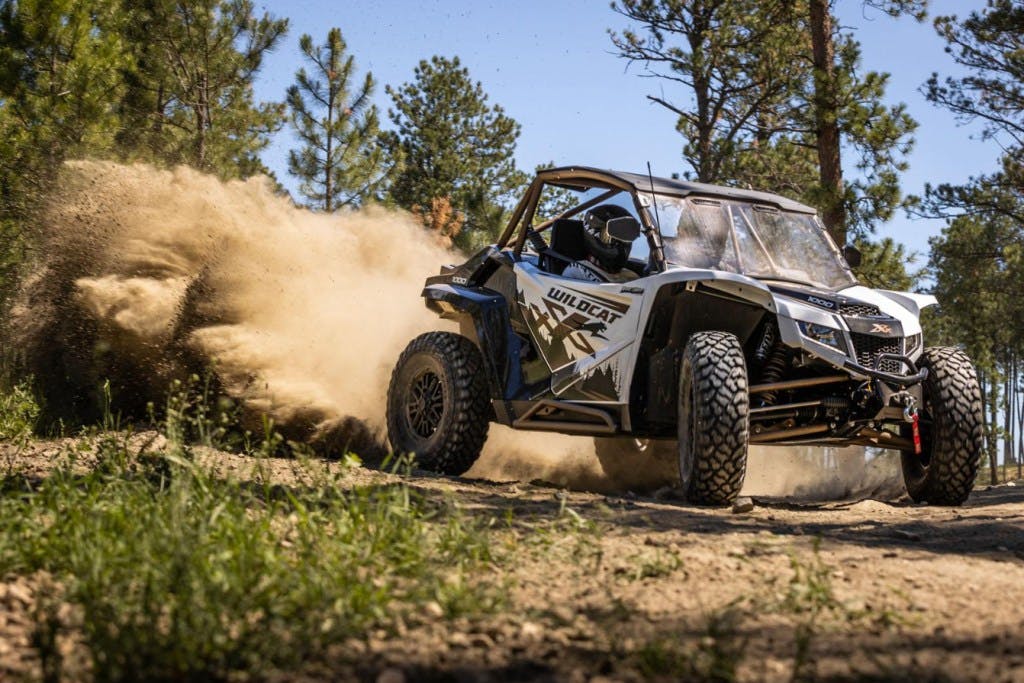
Call it the Mazda Miata of sport rigs. A driver’s car. A club racer. Whatever you want to call it, the Wildcat XX deserves consideration.
How much power does it make?
Arctic Cat claims the Wildcat XX’s 998cc naturally-aspirated triple is good for a full 130 horsepower. That’s an impressive figure considering there’s no forced-induction involved, and a healthy improvement over other non-turbo competitors like the Kawasaki Teryx KRX or Honda Talon.
That power is routed through Arctic Cat’s proprietary ADAPT CVT system, which is one of the snappier and smoother units we’ve tested over the years. All things considered, the engine is well matched to the chassis, and you’ll rarely find yourself wishing for more outside of a straight line drag race with your buddies.
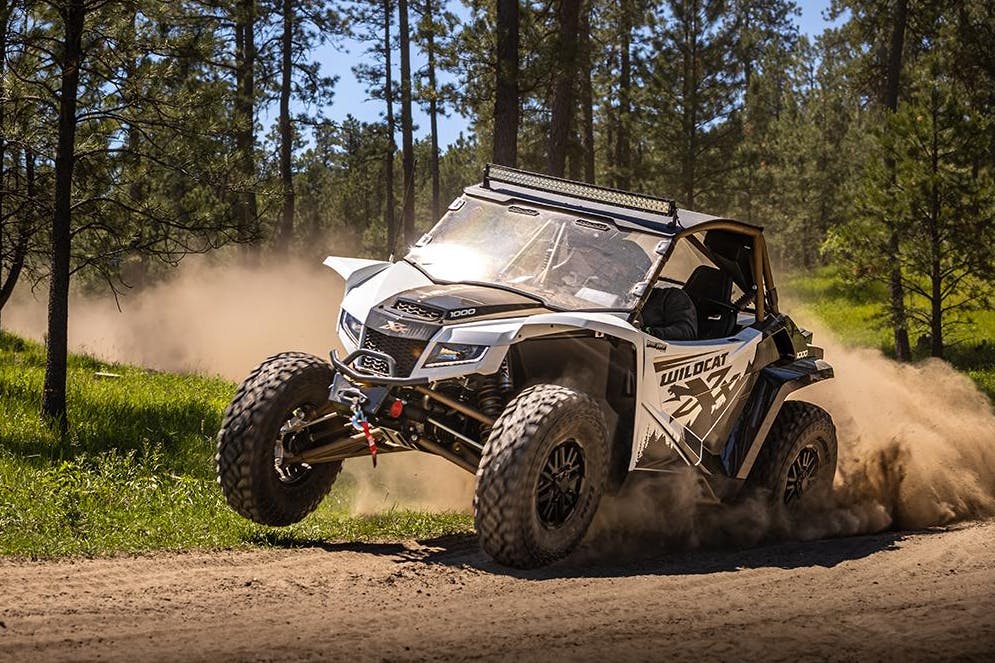
What makes it special?
In a word, it’s all about the chassis. The Wildcat XX stands apart in the sport market because it prioritizes handling and ride quality over everything else.
Everywhere you look, the Wildcat XX’s chassis is dripping with unique features. The rear trailing arms, for instance, are a radius rod-free design with stamped ribs for added rigidity. The ROPS system is among the beefiest we’ve ever seen, the engine hangs from rails rather than sitting on mounts to protect it from impacts, and the front end uses forged aluminum knuckles with dual heim joints and forward-mouted radius rods.
Even at nearly 10 years old, the Wildcat XX’s engineering still stands out from the competition. That theme continues with Arctic Cat’s commitment to owner-friendly design, which employs easily removable components like the bed and skid plates for on-the-go maintenance and adjustability.
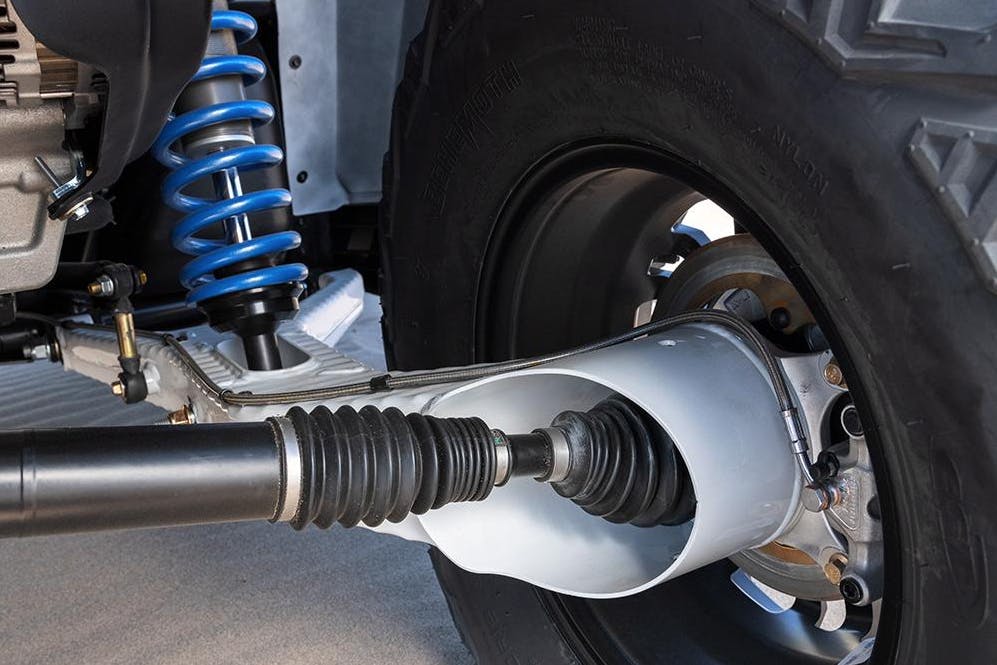
Why do I want it?
You want an Arctic Cat Wildcat XX because you value a good honest sport rig over bells and whistles. The Wildcat XX has a sublimely well engineered chassis that’s backed by outstanding suspension, and still outperforms most other rigs at this price point in that regard.
You also want a fast rig with a thrilling engine, but don’t prioritize outright horsepower. The Wildcat XX’s 130 ponies might sound small compared to rigs like the 250-horsepower Teryx H2, but its still a properly quick machine, and will run through technical terrain faster than most thanks to the chassis anyways.
We’ll also note that the Wildcat XX is built to go the distance. Between the non-turbo engine, the stout tube chassis, and Arctic Cat’s emphasis on reliable components and easy service, longevity and reliability aren’t complaints you’ll often hear from Arctic Cat owners.
It also happens to look outstanding in our opinion, and is all but guaranteed to stand out in a sea of RZRs and Mavericks.
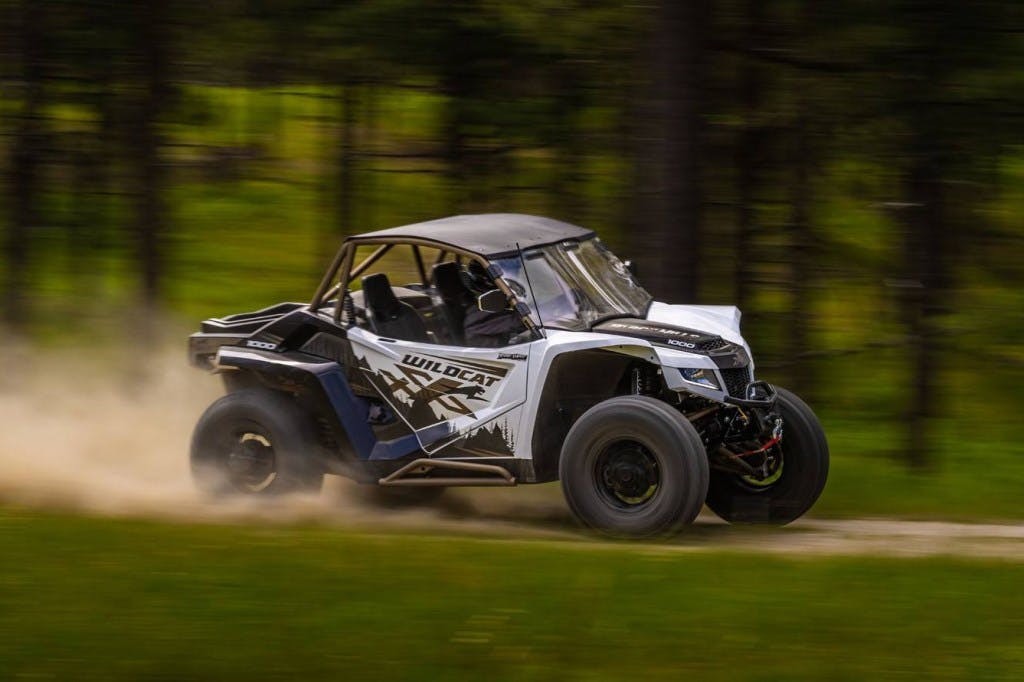
Why don’t I want it?
The short answer here is that while the Arctic Cat Wildcat XX is an outstanding all-around sport rig, it’s getting awfully long in the tooth. Arctic Cat has been building this machine relatively unchanged since 2018, and many of the advancements found in competitor’s rigs are lacking here.
The interior looks and feels basic, with generic black plastic trim covering every inch of the dash. The seatbelts are standard three-points, the LCD gauges are from a by-gone era, and factory infotainment upgrades are an afterthought at best.
We’ll also note that because Arctic Cat machines aren’t as popular as other brands, there’s less aftermarket and/or dealer support available. That can put a damper on parts availability, although most owners report these rigs to be better built and more reliable than average. Resale values also tend to suffer as a result.
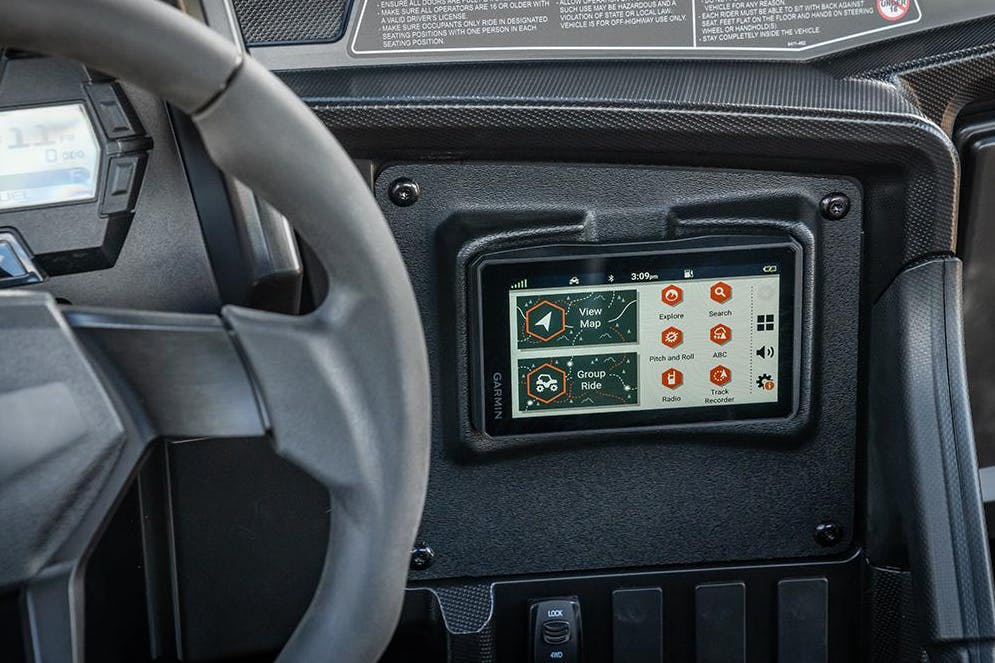
What trim do I want?
The Arctic Cat Wildcat XX comes in two trims for 2025: there’s the base model “Limited” at $24,999, and then there’s the premium “Black Hills Edition” for $28,999.
Both cars share the same engine and chassis, so the trademark Wildcat handling is preserved in either model. That being said, we’d recommend stepping up the Black Hills if you can afford it.
Opting for the premium trim unlocks a slew of upgrades including an aluminum roof, a Warn 4,500 winch/bumper combo with synthetic rope, larger 32-inch tires, and color-matched rock sliders. Arctic Cat also equips the Black Hills Edition with a Garmin Tread center display for info and navigation, as well as a 40% reduced low gear ratio for improved control in technical terrain.
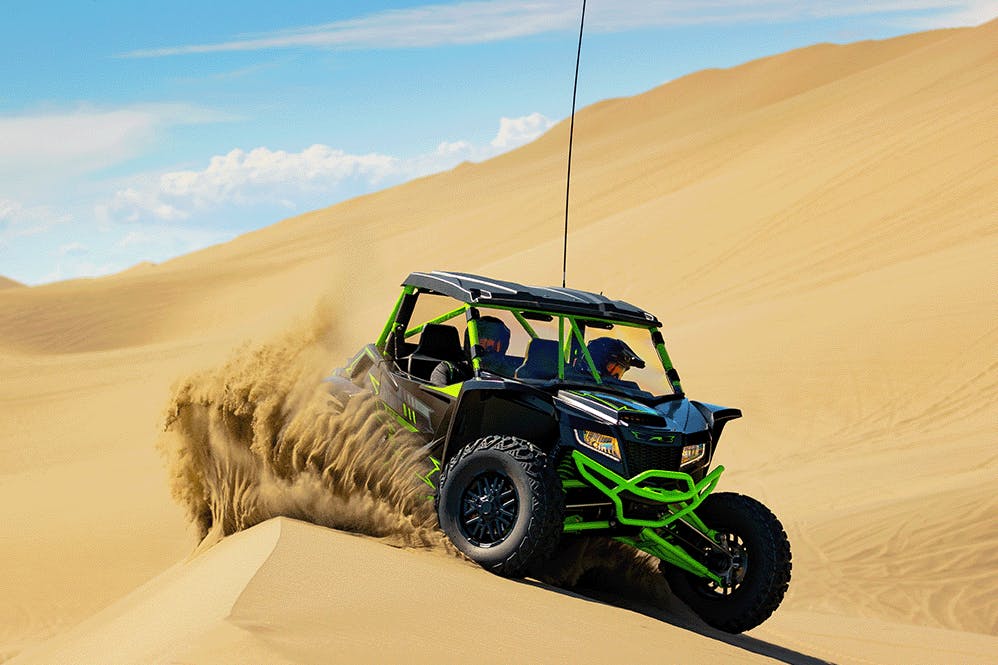
If I like this… what else should I look at?
If you like the sound of a more reliable rig with an emphasis on suspension, Kawasaki’s Teryx KRX 1000 is the natural alternative to a Wildcat XX. If you want more power without sacrificing dealer support, consider the Polaris RZR Pro XP or Can-Am Maverick X3.
2025 Arctic Cat Wildcat XX Specs
*Specs listed are for Limited Trim model*
Length: 136 in.
Width: 64 in.
Height: 67.5 in.
Wheelbase: 95 in.
Claimed Dry Weight: 1,816 lbs
Engine: Liquid-cooled inline-triple
Displacement: 998cc
Transmission: ADAPT CVT
Claimed Power: 130 hp.
Claimed Torque: NA
Fuel System: EFI
Steering: Electronic power steering
Drivetrain: 2WD / 4WD Electric Actuation, with Selectable Front Diff Lock
Front Suspension: Fox 2.5 Podium QS3: Double A-Arm with 18-in. (46 cm) Travel
Rear Suspension: Fox 2.5 Podium QS3: Trailing Arm with 18-in. (46 cm) Travel
Front Brakes: Dual piston hydraulic disc
Rear Brakes: Single piston hydraulic disc
Wheels F/R: 15 in. Aluminum
Tires F/R: CST Behemoth / 30×10-15
Bed Capacity: 300 lbs
Towing Capacity: NA
Seating Capacity: 2
Ground Clearance: 15 in.
Fuel Capacity: 9.8 gal
